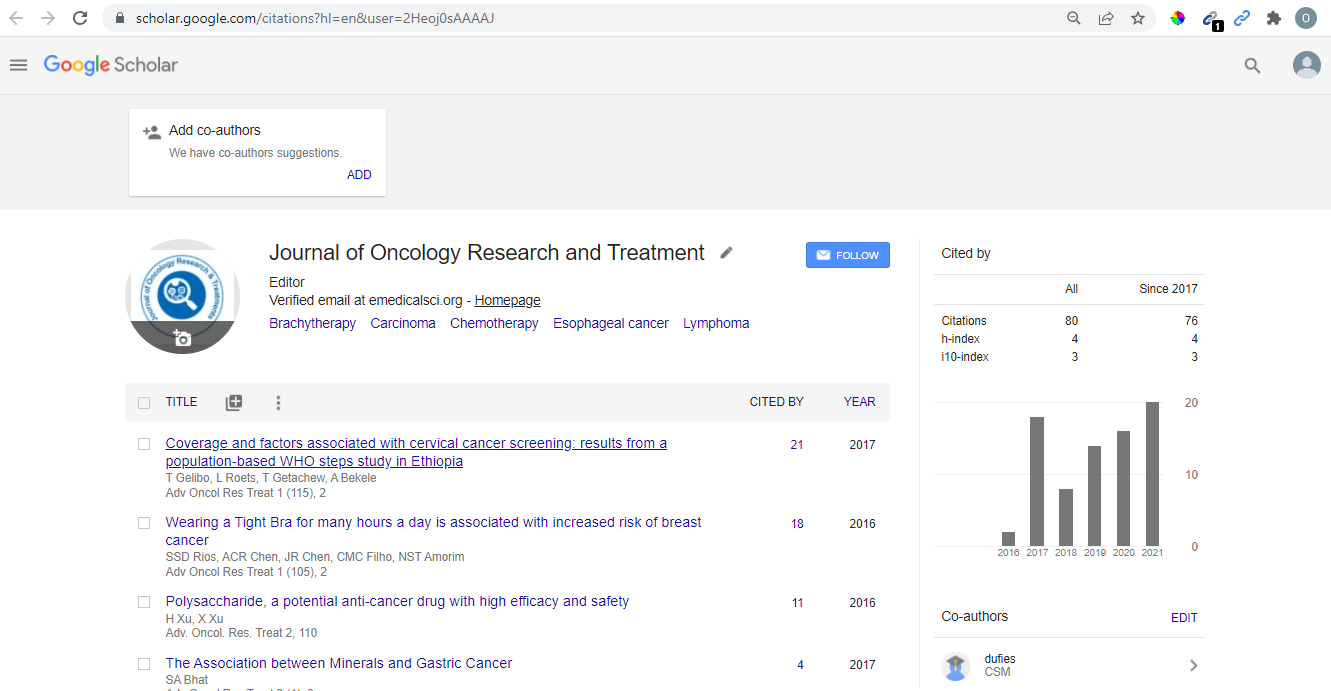Predicting the Prognosis and Survival in Early-Stage Lung Cancer after Curative Surgery
*Corresponding Author: Terence Chi Chun Tam, Department of Medicine, University of Hong Kong, Pokfulam, China Exn.22553111, Email: tcctam@netvigator.comReceived Date: May 22, 2023 / Published Date: Jun 23, 2023
Citation: Kwok WC, Ma TF, Tam TCC (2023) Predicting the Prognosis and Survival in Early-Stage Lung Cancer after Curative Surgery. J Oncol Res Treat. 8:228.DOI: 10.4172/aot.1000228
Copyright: © 2023 Kwok WC, et al. This is an open-access article distributed under the terms of the Creative Commons Attribution License, which permits unrestricted use, distribution, and reproduction in any medium, provided the original author and source are credited.
Abstract
Lung cancer remains one of the most important cancer-related mortality. More early-stage lung cancer is expected to be diagnosed, due to the use of low-dose computed tomography in lung cancer screening. Among all cell type, adenocarcinoma was the commonest among Asian population, with EGFR mutation being the commonest driver mutation. Various clinic-pathological factors were reported to be associated with the prognosis of early-stage lung cancer. Prediction rules were also developed based on different prognostic factors, to predict the survival and recurrence of lung cancer after curative surgery. There are also dedicated prediction rules that were developed on specific ethnic subgroup, such as Chinese population. Furthermore, with the advancement of artificial intelligence, deep learning and other advanced technologies, novel prediction rules are being developed that can further enhance the prognostication of early-stage lung cancer. In this mini-review, we present the reported prognostic factors of surgically resected early-stage lung cancer, the prediction rules developed, as well as the future direction of clinical research.

